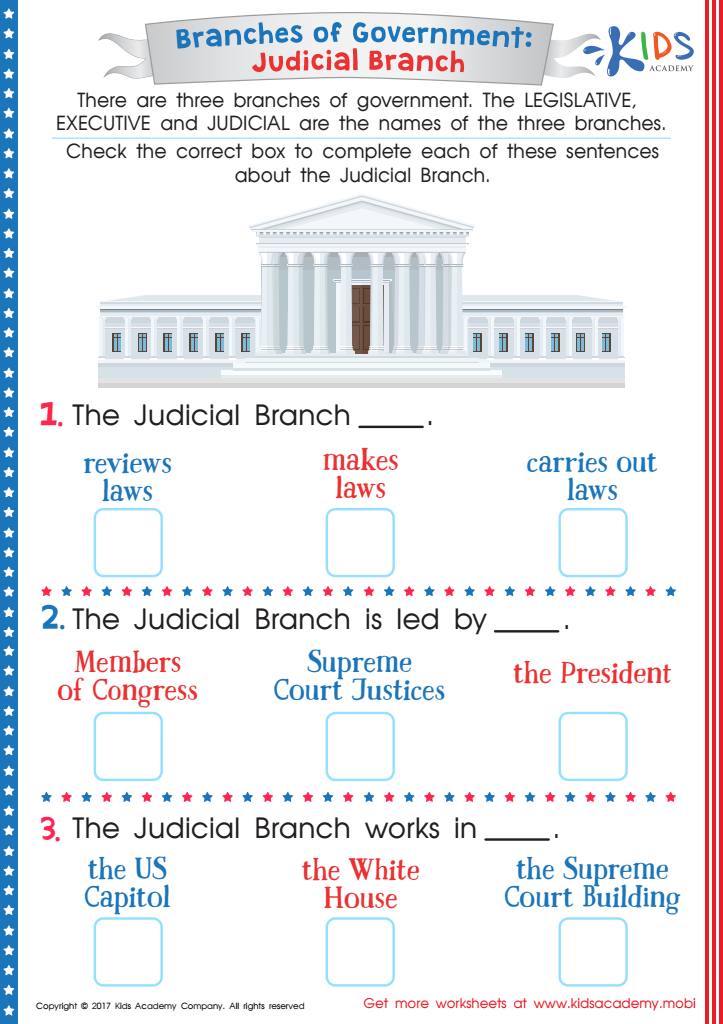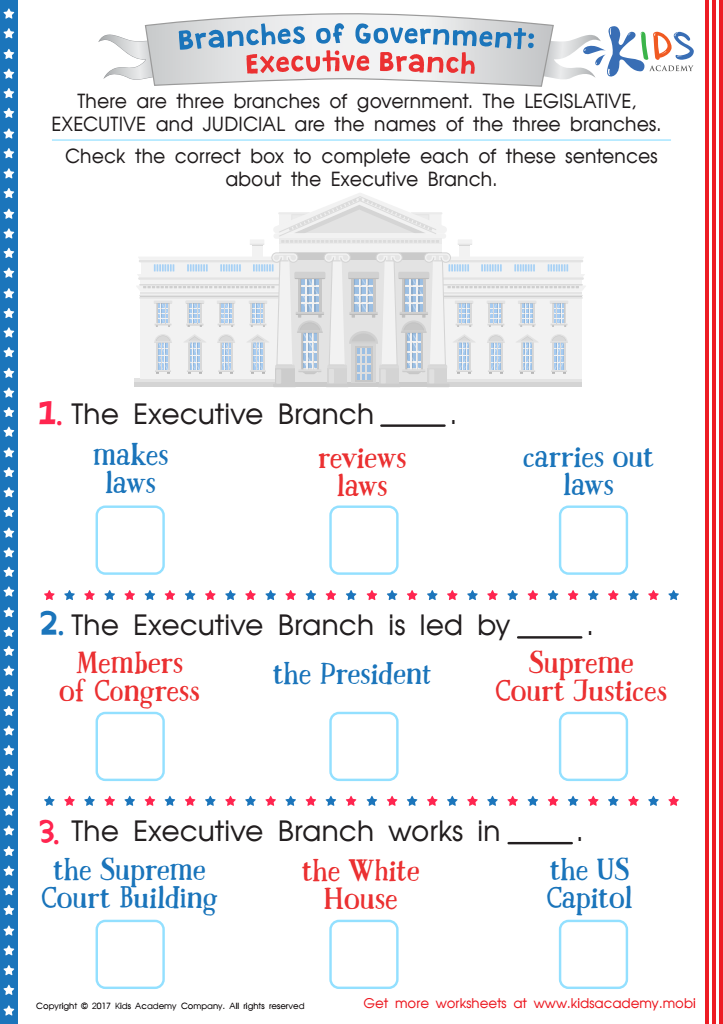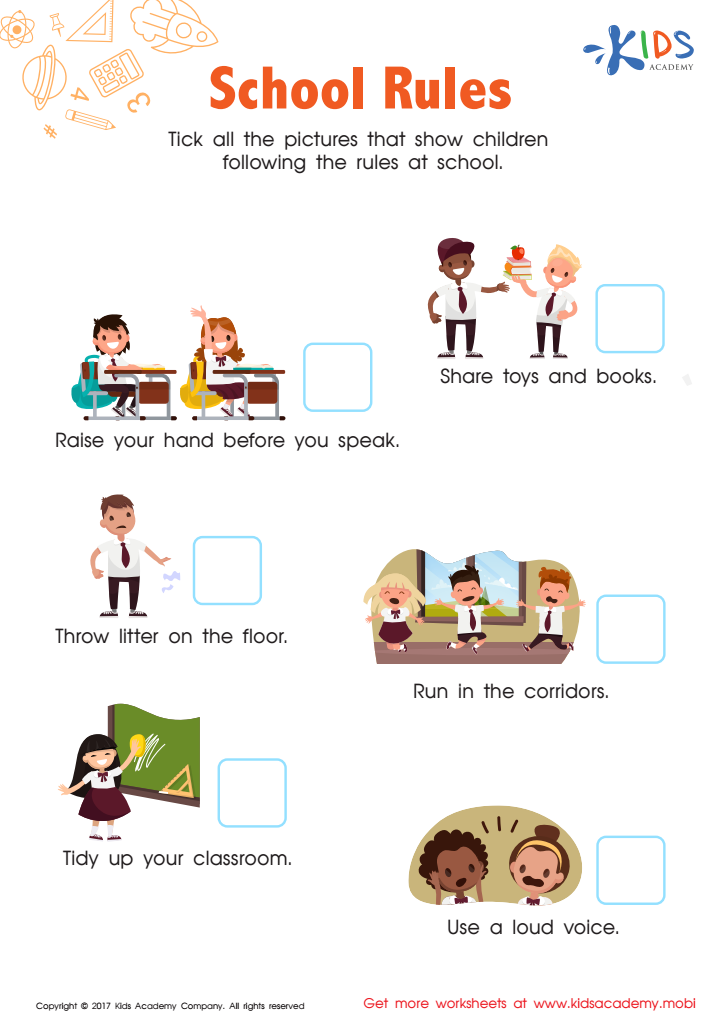Governance and Civics Worksheets for Ages 3-8 - Page 3
51 filtered results
-
From - To


Braches of the Government: Judicial Branch Worksheet


Branches of the Government: Executive Branch Printable


School Rules Worksheet
Introducing governance and civics concepts to children aged 3-8 helps lay a vital foundation for their social and moral development. During early childhood, kids are highly impressionable and begin to grasp the basics of community, fairness, and responsibility. This stage is perfect for instilling values such as cooperation, respect for rules, and appreciation for diversity, which are fundamental to good citizenship.
When young children are taught the basic principles of governance, such as the importance of rules and the roles within communities, they learn to associate these concepts positively with their everyday experiences. This initial exposure to civics also fosters critical thinking and problem-solving skills as children learn to navigate social norms and resolve conflicts appropriately.
Furthermore, early education in governance and civics empowers children to become informed and active members of society. It helps them understand their roles and responsibilities not just within their families or classrooms but also within larger community settings. Parents and teachers who prioritize this aspect of education are investing in the development of conscientious, empathetic future leaders.
In sum, by integrating governance and civics into the learning experiences of young children, parents and teachers can shape well-rounded, socially responsible individuals who appreciate the significance of their contributions to the community.
 Assign to My Students
Assign to My Students










